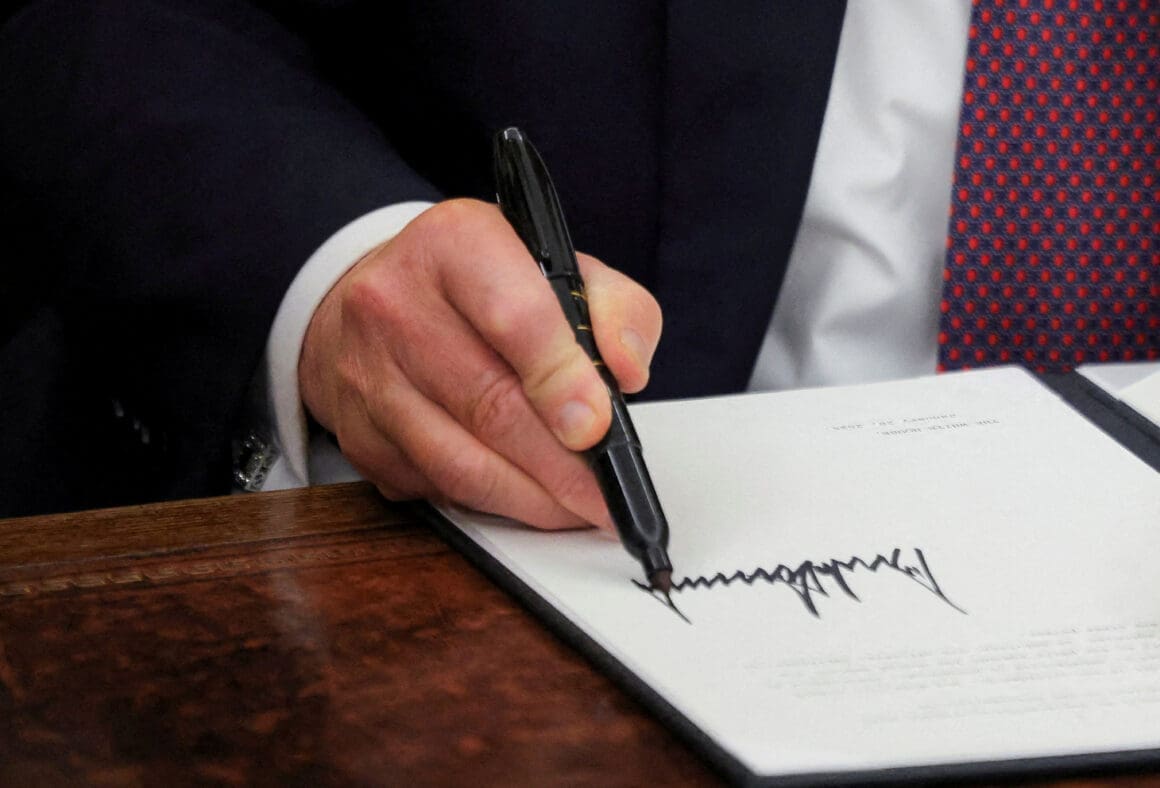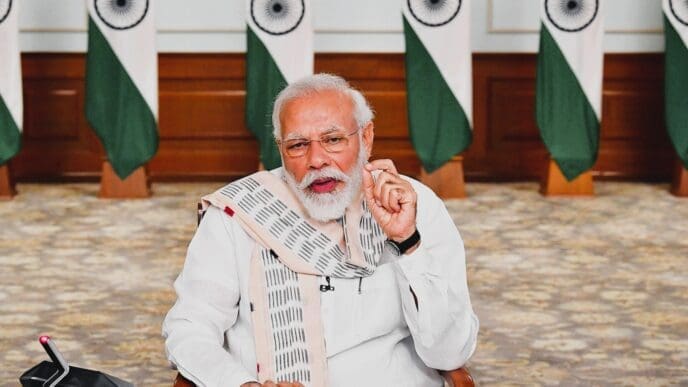Recent tariffs imposed by President Donald Trump have taken effect, introducing a 10% customs duty on a variety of goods imported into the United States. These tariffs, effective from 6 a.m. Central Europe Time (CET) on Saturday, are part of broader trade measures with country-specific tariffs set to be implemented on April 9. The trade tensions have sparked a significant response in global markets, particularly as China has countered with retaliatory tariffs of 34% on American imports.
Global stock markets have reacted negatively, with major exchanges closing in the red by the end of the week. Milan’s FTSE MIB experienced the most substantial decline, falling by 6.53%. Similar losses were observed in Frankfurt, London, and Paris. The U.S. markets were not spared, as Wall Street saw a sharp downturn. The VIX index, known as the “fear gauge,” surged by 50.93%, reaching its highest level since the initial COVID-19 pandemic crash. The Dow Jones and Nasdaq both suffered significant losses, dropping 5.5% and 5.8%, respectively, resulting in a $5.2 trillion market wipeout over two days.
Despite the market turbulence, President Trump appeared unconcerned, expressing confidence that major businesses are focused on the long-term benefits of trade negotiations. He emphasized the pursuit of a “BIG, BEAUTIFUL deal” to bolster the U.S. economy, as stated on his social media platform, Truth Social.
The tariffs have elicited strong reactions from European leaders. EU Trade Commissioner Maroš Šefčovič criticized the measures as “harmful and unjustified,” emphasizing the EU’s commitment to meaningful negotiations with the U.S. In the United Kingdom, Prime Minister Keir Starmer has initiated discussions with global leaders to formulate a response, warning against the detrimental effects of a potential full-blown trade war.
Italy’s response has been one of caution, with Economy Minister Giancarlo Giorgetti and Foreign Minister Antonio Tajani advocating for a measured approach to avoid escalating the situation. Giorgetti highlighted the importance of representing Italy’s interests within the EU framework, while Tajani stressed the need for coordinated action rather than alarmism, noting the limited economic impact of the tariffs on the EU’s GDP.
The Bottom Line
- The tariffs could lead to increased prices on imported goods, affecting consumer spending and cost of living in the U.S.
- Global market volatility may impact individual investments and retirement savings, as seen in the recent downturns.
- Businesses reliant on international trade might face challenges, potentially affecting job stability and economic growth.
- Diplomatic efforts are crucial in preventing further escalation, which could have widespread economic repercussions.
- Consumers may experience changes in product availability and pricing due to disrupted supply chains and trade relations.













